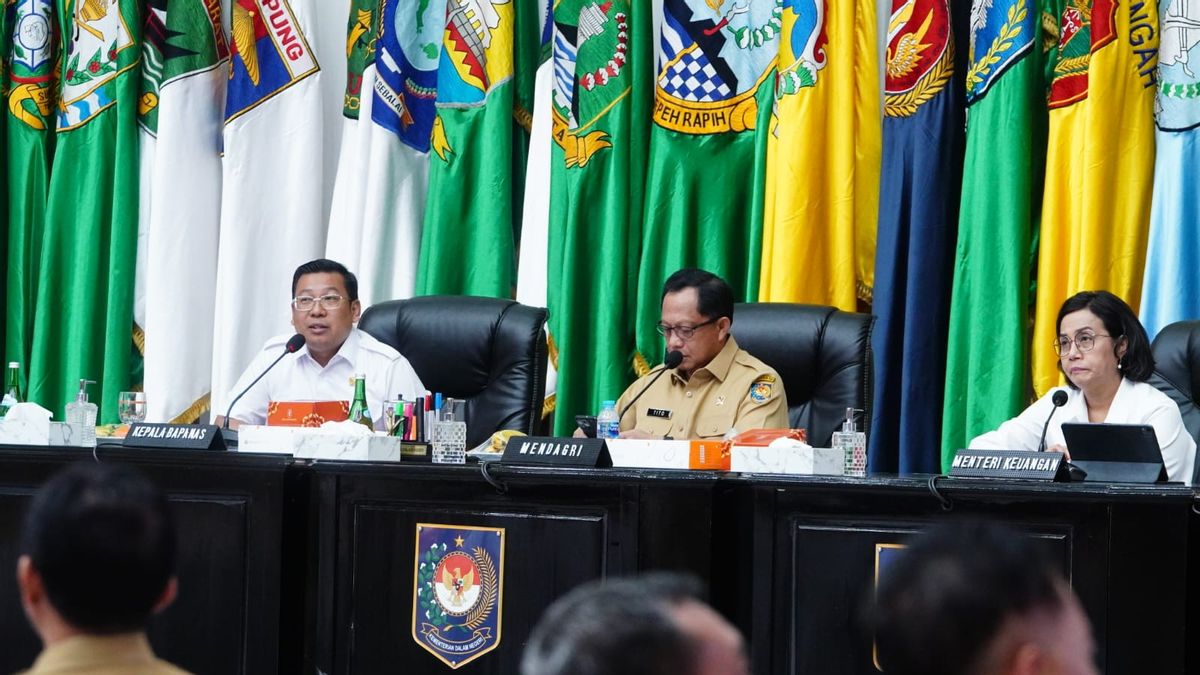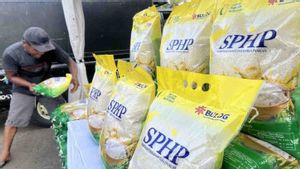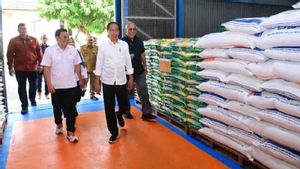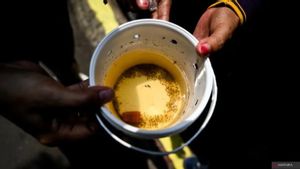Head of the National Food Agency (Bapanas) Arief Prasetyo Adi said the government's efforts to maintain and control inflation, especially in the food sector, can be seen from the decline in inflation.
Furthermore, Arief said that the efforts to control inflation carried out in a synergistic manner with ministries/agencies through various strategic steps for food stabilization are one of the keys to maintaining the inflation rate in May 2024 according to the government's target of 2.5 percent plus minus 1 percent.
Referring to data from the Central Statistics Agency (BPS), the decline in national inflation year-on-year (yoy) from 3.00 percent in April 2024 to 2.84 percent in May 2024. Meanwhile, monthly (mom), deflation in May 2024 was 0.03 percent.
In addition, the inflation rate of volatile price components (volatile food) contributed greatly to deflation at 0.69 percent with a deflation of 0.12 percent. The dominant food commodities contributed deflation to volatile types of prices, including rice, chicken meat, tomatoes, and cayenne pepper.
"Synergy and collaboration between ministries and institutions, provincial and district/city governments as well as various other relevant stakeholders contribute to maintaining the inflation rate so that it remains under control," he said in an official statement, Tuesday, June 4.
"We can see a form of joint commitment through monitoring and routine evaluation every week with the Ministry of Home Affairs by collecting all relevant local governments, agencies and stakeholders," he continued.
Arief also said that the National Food Agency is committed to maintaining food stability and ensuring sufficient food availability for all Indonesian people.
Not only in the downstream aspect related to consumers, the government also pays attention from the upstream side to how the welfare of producers is, in this case farmers. Because upstream prices are of course closely related to price stability downstream," he explained.
Furthermore, Arief said that one indicator that can be seen is the Farmer's Exchange Rate (NTP), and based on the BPS report in May 2024, NTP is still maintained above 100 points despite a decline from the previous month.
He also said that the policy of adjusting the Government Purchase Price (HPP) of grain or rice and the Highest Retail Price (HET) of rice was one of the efforts to maintain the balance of upstream downstream prices.
"This is not easy but a challenge that we must work with all relevant stakeholders," he said.
SEE ALSO:
In addition, to maintain food stability, Badanas also made various strategic efforts, including through the Cheap Food Movement (GPM), Facilitation of Food Distribution (FDP), and distribution of Government Food Assistance. In addition, strengthening the Government Food Reserve Stock (CPP) as an implementation of Presidential Regulation Number 125 of 2022.
In the implementation of GPM until May 31, 3,881 times in 401 districts/cities during the period January to May. Furthermore, the realization of FDP of various types of commodities has touched the 101 tons consisting of 49.2 tons of shallots, 24.9 tons of curly red chilies, 15 tons of chicken meat, and 12.5 tons of rice.
In the implementation of the second phase of rice food assistance as of May 31, NFA through Perum Bulog has realized 44.95 percent. Meanwhile, the first phase of rice food assistance was 99.37 percent.
The English, Chinese, Japanese, Arabic, and French versions are automatically generated by the AI. So there may still be inaccuracies in translating, please always see Indonesian as our main language. (system supported by DigitalSiber.id)











